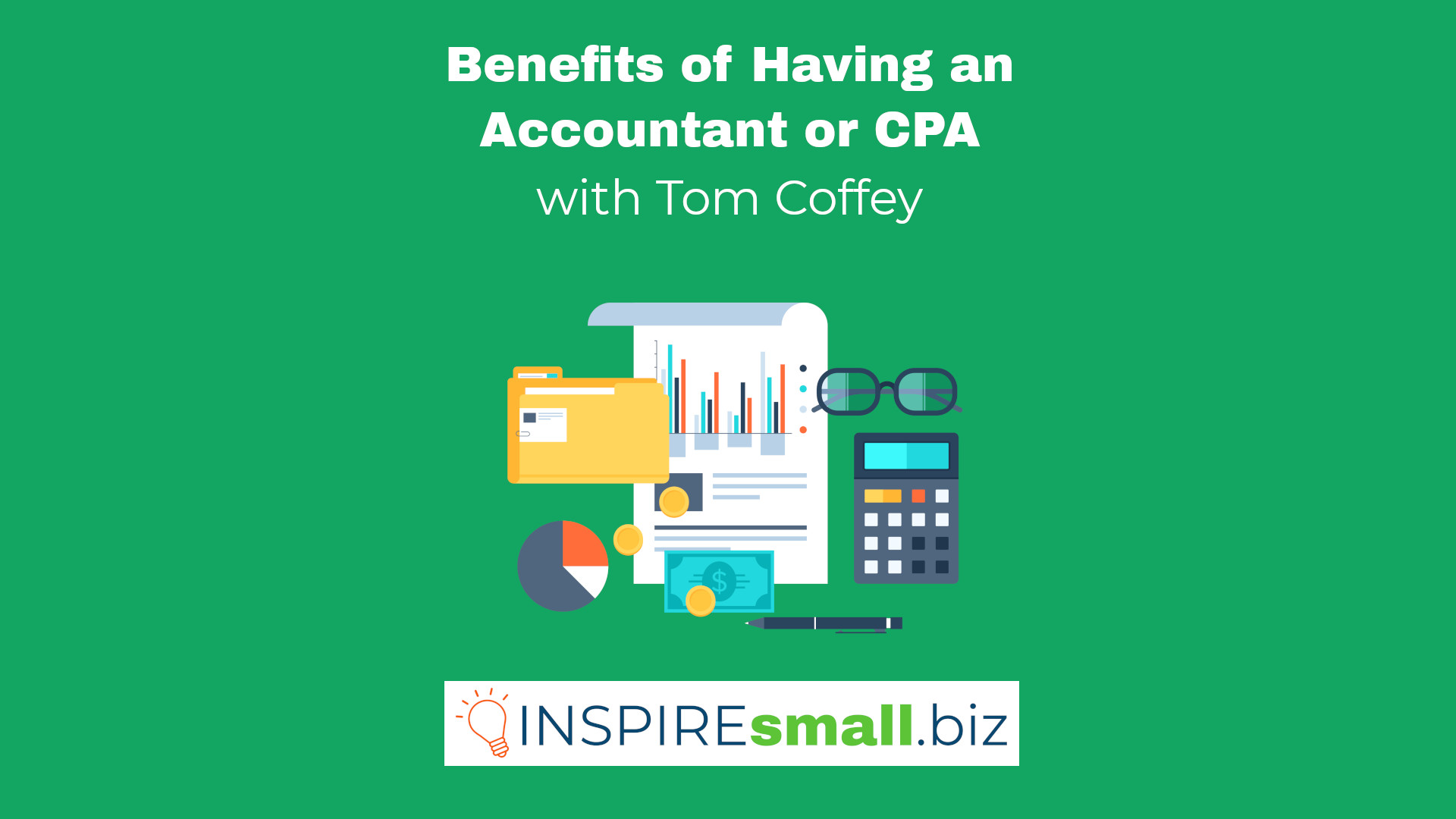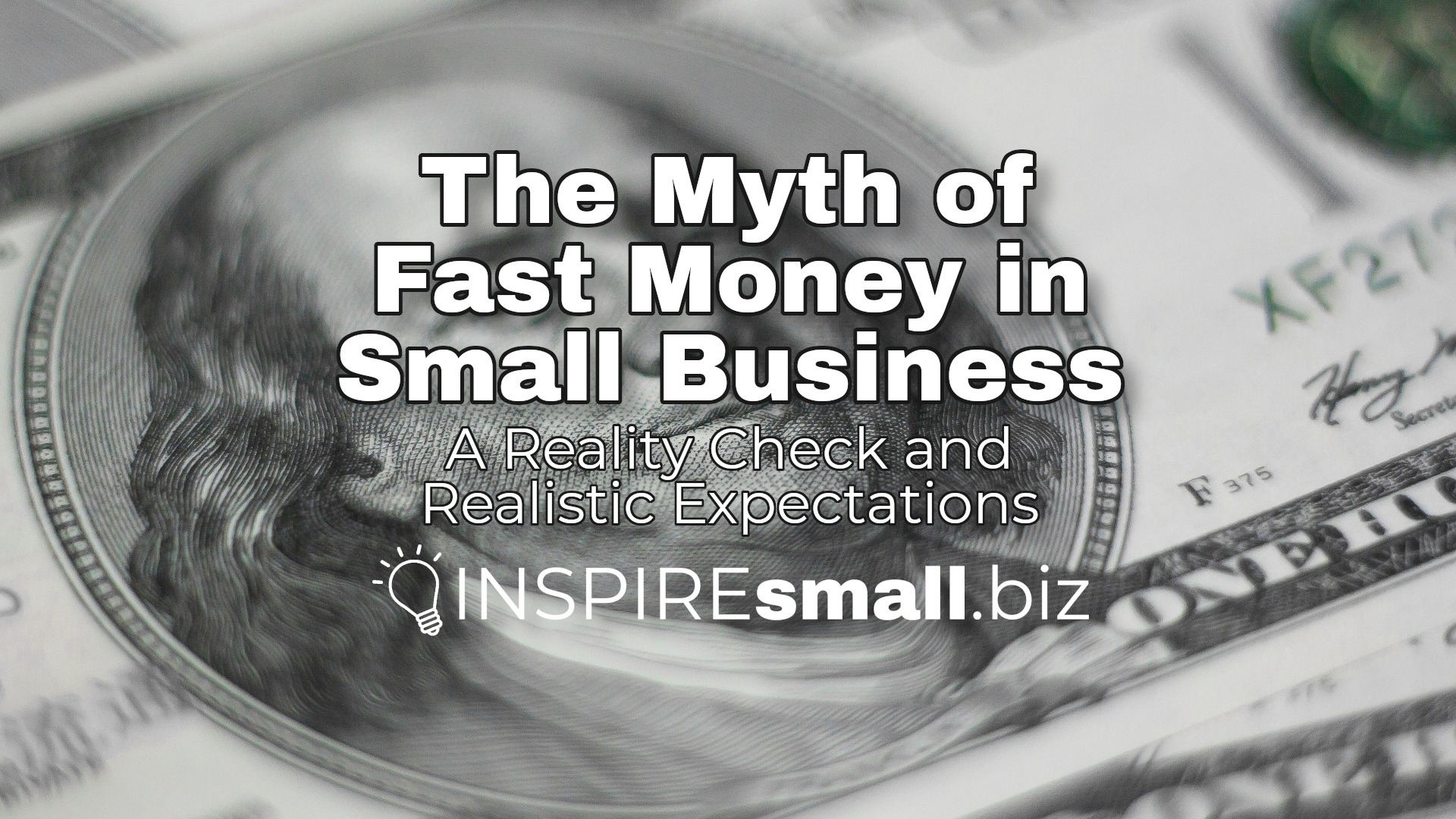Tom Coffey, with Bottom Line Advisors, talks about the benefits of having an accountant or CPA and how it will help your small business.
Here is the transcript from the presentation:
Jamie: So, with that, we’re gonna have Tom present for us today.
Tom: OK, well, really, really glad to see everybody that’s here, and I hope you’re all really settling your seats and stuff because, you know, I’m going to be talking about accounting, and I know you’re all going to be so excited about it that you won’t be able to control yourself. But, you know, so, I was trying to figure which way I was going to go with this and I thought, well, you know, I do book work, you know?
Tom: I do taxes, so everybody knows that, so I thought that maybe instead of so much explaining what I do, is I would maybe talk a little bit about why you should use a CPA. Am I set to screen share?
Tom: We’ll give it a shot.
Tom: We are OK. You’re just sitting here to get this out of my way.
Tom: So, why do you need accountant or even a CPA?
Jamie: OK.
Tom: Most people on this group, especially you, own your own business. You know, you start your own business cause you want to be your own boss. You wanted to follow your dream, solve a, an idea that you had, or you had a great idea you wanted to do. You wanted to make more money. You wanted to have more freedom. You know, it may or not be those things.
Tom: It’s also, as most of you know, it’s really hard work. You have administration issues. You have employee staffing issues. You have partner issues, if you have one. Customers and clients, cash flow issues, accounting and taxes.
Tom: When somebody tells me they’re gonna start a business, I always say, congratulations, what 80 hours a week are you planning to work?
Tom: Here are some of the forms that you have to file if you have a business. You may have, need a 941, a 940, 1099, a W2. In Indiana UC1, a WH1, a WH3, a 1040ES, 1040, income taxes schedule C or a 1065 or 1120 S, a sales tax food and beverage tax. Personal property tax. Other tax issues. Health insurance, retirement, reasonable compensation, self-employment tax, payroll. And then how do you pay yourself?
Tom: You know, how do you get paid. If you insure, if you have insurance, how do you, the workers comp audits you have to go through. If you have lines of credit, you have to arrange for banks, from bankers, or if you have an investor, an outside investor or a family investor, you know, how are you doing, how you planning?
Tom: Also, you need to come up with profit and loss statements, income statements, statements of operations, balance sheets, cash flow statements, statements of change of equity, and tax deductions, what is and what isn’t, and unfortunately this is not a complete list of everything that a small business person has to look at.
Tom: So, when you’re thinking about what part of your business you’re going to do? I always tell people, concentrate on the part that’s going to make you money and then hire somebody to do the parts that don’t make you money.
Tom: Ohh, you know you can do it yourself. You can go to H&R Block, you can go to Liberty. You can do it online using one of the online ones, but are you really, you know, are you really doing a good job on it? And then how long is it going to take you, and is it worth your time to do that?
Tom: If it’s going to take you three days to do your taxes, how much business are you losing in that three-day period?
Tom: So, that’s why we say focus on what you’re good at. Leave the rest for professionals. Getting your taxes filed wrong can cost a lot of money. And we keep a tax attorney on pretty much on speed dial to straighten up all the messes that people get into whenever they try to file their own taxes, so, you know.
Tom: Part of the problem that people have is they don’t have the right understanding of the, the words and the stuff that goes with accounting. When you talk to them, when I talk to people about their entities, a lot of people are confused about it.
Tom: So, one thing that we like to do is, when you pick a CPA, you want to pick somebody that’s going to do education for you, not just do the taxes. If they’re going to make a suggestion to you, they should be able to explain to you so that you understand it, what they’re suggesting, what the benefits are going to be and, and how to implement that for you.
Tom: Just talk a little bit about the entities, you know, entities are created at the state level. And then the IRS says whatever the state says that is OK, is OK with them.
Tom: There’s different ways you can choose for your tax treatment. Are you a, a LLC single member or your LLC partnership? Are you an LLP?
Tom: If you’re partnership, do you have operating agreements? Do you know that if your partnership or your corporation, you’re supposed to have corporate minutes also?
Tom: Most people don’t, because they don’t have a, they don’t have a meeting, they’re just sitting there doing their work all the time.
Tom: So, if you’re self-employed, you know, the taxes from your business pass through to you personally, so you don’t have to pay business taxes from the business, it comes through to you.
Tom: And, and then you pay it from your own time, from your own. And it comes through a lot of times, if you, you’re just by yourself.
Tom: It could come through as a schedule C, or if you have a partnership or some of the other things that you can do with it, then you have to file a separate return and then the profit or loss from that business return goes to your personal, and that’s where you pay the taxes.
Tom: The exception of that is a C Corporation, and a lot of people want to do the C Corporation. It’s, it’s very popular for people that are pulling money out of the retirement accounts to get a business going, and you can tell the difference because instead of saying LLC at the end, it says INC. And the thing about a corporation is, the federal government says a corporation is a person and therefore has to pay taxes.
Tom: So, with a corporation, if you make a profit in your corporation, first off, the corporation pays taxes on that profit, and then if you take a dividend from what’s left over that, then you get to pay taxes again on the dividends.
Tom: So, unless you’re a big company or thinking, you’re gonna have a lot of stockholders, it’s probably not a good idea for most small businesses.
Tom: A lot of people, when I go in to talk to them, telling me they’re an S corporation. And just so you know, there is no such thing as an S corporation. It’s only a designation.
Tom: It’s that, you’re designated as an S Corp because the only thing that the S Corp does for you is it saves you in your self-employment taxes, and basically the way that works is, you go to the state of Indiana and you tell them what kind of company you want to be and the federal government says OK, then you go to the federal government and say I would like to be taxed as an S corporation and the Fed in the state of Indiana that says that’s OK.
Tom: So, they work, work together on that, so it’s a good way to save you a lot of money. I met with the customer on Tuesday and showed him how he’s been paying $4500 a year too much in taxes.
Tom: What can you deduct? What can you not deduct? This is just a small list of the stuff that you can deduct.
Tom: Most of it people do know, you have advertising, marketing, admin, software dues and subscriptions, postage, shipping, office supplies, staging expenses, wages, your staff, your office equipment, telephone, Wi-Fi, and Internet connectivity. And that also includes if you’re working from home computer and hardware.
Tom: If you’re using your car, you have to travel and then you get the mileage on it. You don’t get to deduct mileage from your home to work or work to home, but if you’re in sales or you’re out seeing clients, then your mileage is deductible for you. Meals, you need to talk with your CPA’s about. There’s a lot of guidelines on meals and how much that you can deduct on them and what constitutes what you can. If it’s just your regular lunch by yourself, no, you can’t.
Tom: One of the things that a lot of people don’t think about is, if you have to go for training for your occupation and you have to go to another city, then all the expenses of getting there, staying there and for your training are all deductible.
Tom: So, and then there’s a few other things that come up with the bank charges, you even get to deduct what you charge your CPA, your accountant, if you have to use an attorney, interest on a loan.
Tom: A lot of people think if they take out a loan, they can deduct the whole payment off their taxes. You cannot, it’s only the interest.
Tom: And when you get into health insurance, depending on what kind of company you are, there’s a lot of regulations on the way you have to do that. So, you should talk to a health insurance specialist.
Tom: Oh, we talked a little bit about the S Corp designation.
Tom: So, it’s small business owners. When you work for somebody else and you’re getting a W2 paycheck, they were taking out Social Security and Medicare on you and what they took out was 7.65 percent. Your employer had to match that.
Tom: So, now that you’re your own employer, congratulations, you get to pay both sides of that. So, you’re paying 15.3% for your Social Security and Medicare, so with the S designation allows for you to do is to shield part of your income for lack of a better word. I’ll say shield where you don’t have to pay self-employment tax on it.
Tom: There’s some things to watch out for it. Look here. I have another slide we’ll go into a little bit more that I put in, but basically what the S designation says is that you pay yourself now on a on a W2 pay stub and you pay yourself a prevailing wage for what it would cost for somebody to do your job, and then anything you’re making over that you take as disbursements, and on the disbursements you don’t have to pay the self-employment tax. So, for example, if you made $60,000 a year and most people in your business makes $40,000 a year. You pay yourself 40,000 through payroll, 20,000 through disbursements and the 20,000, you would save that 15.3 or just over $3000 in taxes, so it’s a, it’s a pretty good thing for you.
Tom: It’s kind of that. That’s an easy explanation. There’s some other things come into it, so you’re not really saving the whole 3000, but it is a benefit for you.
Tom: A lot of times people ask us about disbursements and they they’re like, well, I’m not going to take the money out of my company cause I don’t want to pay taxes on it. The government really doesn’t care where you leave your profit, they’re going to tax you on it. They find, they, you know, they’re going to get everything they can.
Tom: So, if you leave it in the company checking account, Yep, you’re still paying taxes on it. If you having a company saving account, you’re still paying taxes on it. If you’re paying it to yourself, you’re still paying taxes on it, so you know unless you need a lot of cash for your business, like you’re running a high inventory or something, there’s not real benefit to just leaving that money lay there.
Tom: And if you want to know what to do with it, there’s a couple people here with us that can give you some expert advice on that. Ok.
Tom: OK, so why do you need an accountant?
Tom: OK, it makes sense to have an accountant for a small business because there’s so many things that could come up that you may not be familiar with, or deductions that you may be missing.
Tom: I mentioned people that work from home. They don’t, a lot of people when they work from home don’t realize that they can deduct part of their rent or house payment, part of their utilities and their Internet system, not their cable for the TV, but the Internet. If they’re using for the computer. So, that’s some extra expenses for you.
Tom: People in offices don’t realize that if you have coke or water or stuff in your office, if you’re offering it to customers, whether they’re accepting it or not, then that becomes a deduction for you, so that’s pretty good.
Tom: I have a gentleman that’s an insurance agent in Zionsville, every time I walk in the door, he asks me if I want a cigar. I told him, I said, well that’s pushing it a little bit, but at least you’re, at least you’re offering it to me, so a nice thing.
Tom: When you’re, when you’re looking for a CPA or an accountant, look for one that does what you need to do. As I was talking with Jeanette at one of the meetings we were at, we really don’t want to do personal income taxes. It’s, it’s not what we do, it, it clogs up our system that we have for working with business customers, and she doesn’t want to really do the business customers.
Tom: Business customers, you have to kind of work with all year long and there’s a lot of extra questions they ask on it. And so, besides preparing monthly or quarterly financial statements and sheets, we help with tax planning, tax return preparation, business consultant, entity education and creation.
Tom: Educate the owners on, on compensation and taxes and help owners track their bases and distributions of property, so the way our company does it is, we have no bookkeepers. We’re only using CPAs. Every one of our CPA’s, they all came from the business world, so they understand businesses or they came from the nonprofit worlds. We have certain nonprofit accounts also.
Tom: So, we specialize in small businesses. We’re not working with any large corporations, because we want to make sure that we stay focused on the basic client, clientele.
Tom: You know, we make it easy for our customers by doing a flat fee, so they don’t have to worry about one month. They’re, they’re, they, they get their bill and think this is not bad, and the next month they get a bill that’s three times as much. And that happens a lot of times, because most accounting firms work like lawyers, and they charge for the amount of time that you’re talking to them.
Tom: We do not. That’s part of our monthly fee, and also whenever you’re talking to our company, you’re not talking to a bookkeeper that says, I don’t know. I’m not the accountant. You’re talking right straight to the to the CPA and they all work, they all work using their cell phones, and believe it or not, they’re all stay at home moms. He didn’t mean for them to be moms, but they are.
Tom: It’s like saying they all came from the business world, so they’re easy to get ahold of and they all are really good at returning phone calls. OK, that kind of sums it up.
Tom: I should have told you also, Jamie, that when everybody was telling where they were calling in from today, I’m, I’m in the independent nation of Broad Ripple. Does anyone have any questions?
Tom: Thank you very much.
Ryan: Hey Tom.
Jeannette: I’d like I’d like to share one statistic if I could. Small businesses that fail, 80% of them fail because they do not hire bookkeepers. They don’t know the status of their business. They make mistakes on taxes and it may sound like a big fee sometimes, but they’re really quite vital to your business.
Tom: And that failure usually happens within the first five years, yes.
Jamie: So, if somebody wanted to work with Bottom Line Advisors, is it best for them to call you first or can they get connected directly to the main office? What’s the best way for somebody to get connected?
Tom: They can call me, or they can call anybody else in the company that will tell them to call me.
Jamie: There you go, I, I love it.
Tom: If you, Jeanette will understand this better than a lot of people, but if you’ve ever tried talking to a CPA direct first, they get down in the weeds really quick. And when we were doing, trying to hire a, an office person, he says, well, it’s your network, you’re asking if somebody you know would like an office job and I told him, you know, it’s the basic office job, you know, typing, filing, answering the phone and working with customers.
Tom: The hardest part of the job is, if you go in and ask Andrew the CPA a question that takes one sentence to answer, it takes him about 40 minutes. That’s awesome, just like an attorney when you ask them a question, they have to cover every aspect not to get in trouble, whereas with me, I, I’m actually the only non-CPA in the company.
Tom: My background was mortgages and banking which I did for about four decades. So, I understand taxes and can answer most of your questions in a language that most of the customers can understand. And then I can, that if they want more information, then unfortunately, they have to talk to the CPA.
Jamie: Absolutely fantastic. Well let’s everybody give Tom a round of applause for that.
Jamie: Thank you, sir.



